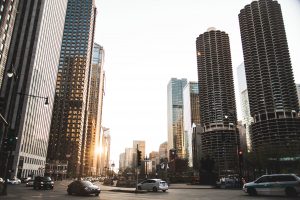 There are few issues that are guaranteed to raise legal temperatures higher than that of “justified police shootings.” Issues of outright racism and civil rights have come to the fore as a consequence of this specific issue. The media has played its role in sensational coverage, which often masks the serious legal issues at stake. You only have to read about the Laquan McDonald case to understand some of the complexities involved.
There are few issues that are guaranteed to raise legal temperatures higher than that of “justified police shootings.” Issues of outright racism and civil rights have come to the fore as a consequence of this specific issue. The media has played its role in sensational coverage, which often masks the serious legal issues at stake. You only have to read about the Laquan McDonald case to understand some of the complexities involved.
The fact that the law is not very clear gives leeway to all sorts of interpretation. The law enforcement officers have assumed (incorrectly) that the law is designed to cover them at every opportunity. Meanwhile, the courts are left somewhat hopeless by the experience of having to litigate and mediate that which is nearly impossible to handle fairly. The charged atmosphere also means that consideration has to be given to the practicalities of how the verdict will be received.
The Starting Point
Everybody in the USA is under the law. They are constrained by it and can be punished if they step outside the boundaries that have been set. The police are no exception, regardless of whether they are on or off duty. Secondly, all citizens are entitled to civil rights and protections. They cannot be hunted down like wild animals without consequence. The law is supposed to be fair and consistent for everyone.
That is the theory of the law, but the practice is an entirely different matter. The statistical data tells a different story. In the age of the smartphone, many members of the public can garner and present evidence that directly contradicts the narratives that are offered by the police. Some law enforcement agencies have expressed concern that their officers will be constrained unnecessarily by vigilantism on the part of anti-police forces.
At the same time, the defensiveness of the police has meant that they are often at pains to paint the victim as a dangerous animal that had to be put down in order to protect the police from serious harm. Then, you have the accumulated anger from people who have been victims of violent crime and believe that someone somewhere has to pay for their suffering, even if it is during an unrelated incident.
If the victim has a criminal history, it becomes even more difficult for the defense attorney to get the public on his or her side. As a consequence, many people never get to experience justice. The trials become about the character of the victim rather than the actions of the defendant. Everybody is left feeling unsatisfied with the verdict for different reasons.
Issues for the Defense Attorney
It is important not to frame the case as a trial of the victim’s character no matter how much the law enforcement officers try to steer it in that direction. At the same time, the defense must not mount a strategy that is focused on attacking police incompetence. The best possible strategy is to show that the defendant has been shot by a law enforcement officer and that there was nothing in the conduct of the victim to make it a justified shooting. Where possible, it should be shown that even if the victim was of bad character, he or she deserved a trial before being executed for past crimes.
The defense attorney should also try to gather evidence from the public and independent witnesses. The law enforcement hierarchy is often quick to come up with theories that implicitly attack the victim. The defense attorney should be proactive in reaching out to those who may have video evidence. Word of mouth can be challenged by attacking the character of the witnesses or otherwise intimidating them. However, the defense attorney should be prepared to give them a voice in court. The history of police violence is a well-known phenomenon. For help with a case regarding justified shootings, contact David Freidberg attorney at law at (312) 560-7100.
(image courtesy of Aidan Meyer)
 Chicago Criminal Lawyer Blog
Chicago Criminal Lawyer Blog


